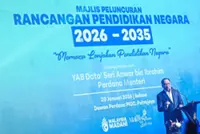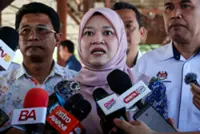OUR education system is the cornerstone of Malaysia’s future, influencing generations to come and driving societal progress. To produce well-rounded, global citizens, we must design an education roadmap that holistically nurtures individuals from Year One to Form Five.
This 11-year journey should balance academic, technical and personal development, ensuring no student is left behind.
Follow us on our official WhatsApp channel for breaking news alerts and key updates!
Thank you for your report!





